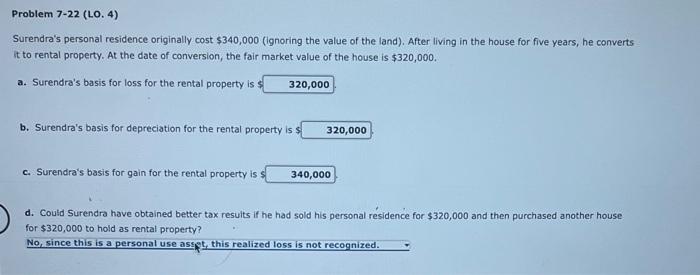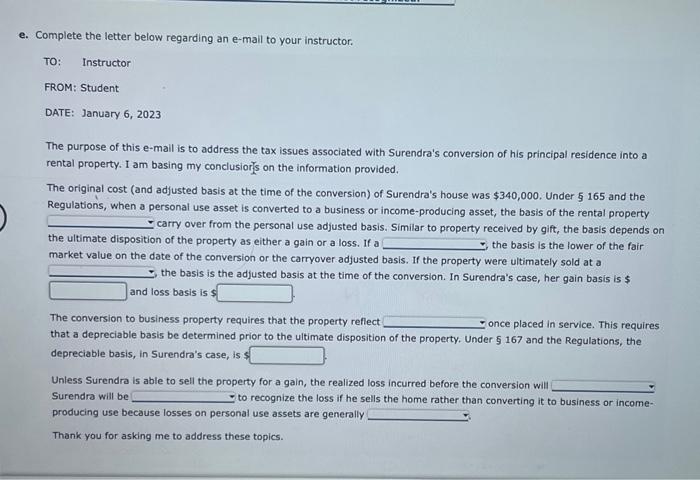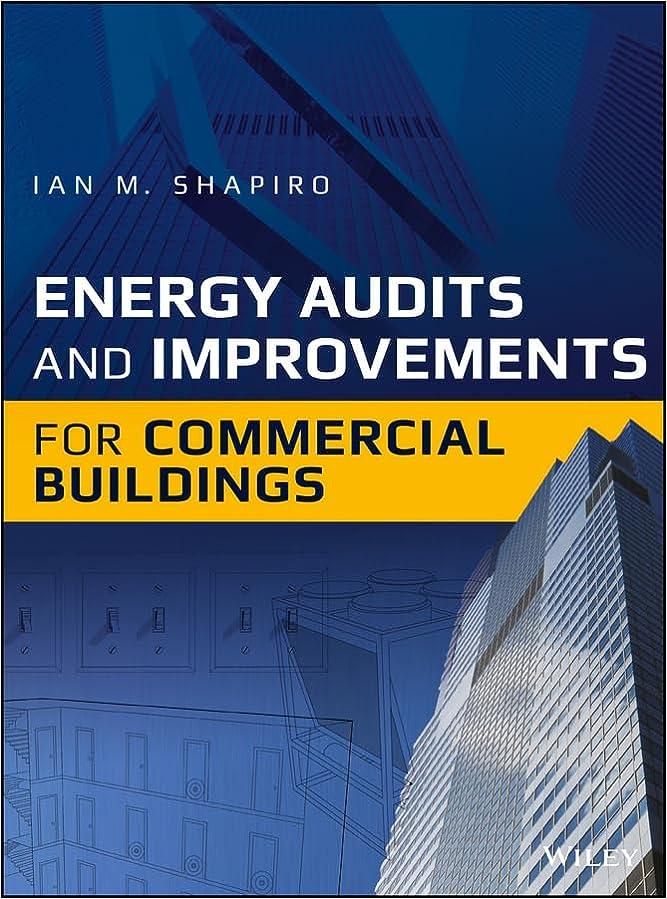Answered step by step
Verified Expert Solution
Question
1 Approved Answer
Blank answer choices for pat e.: 1. does, does not 2. gain, loss 3. gain, loss 4. is a number 5. is a number 6.
Blank answer choices for pat e.: 1. does, does not 2. gain, loss 3. gain, loss 4. is a number 5. is a number 6. any increase in value, depreciation allowable 7. is a number 8. carryover, be lost 9. able, unable 10. deductible, not deductible
I am pretty sure part a-d are correct but just double checking. 


Step by Step Solution
There are 3 Steps involved in it
Step: 1

Get Instant Access to Expert-Tailored Solutions
See step-by-step solutions with expert insights and AI powered tools for academic success
Step: 2

Step: 3

Ace Your Homework with AI
Get the answers you need in no time with our AI-driven, step-by-step assistance
Get Started


